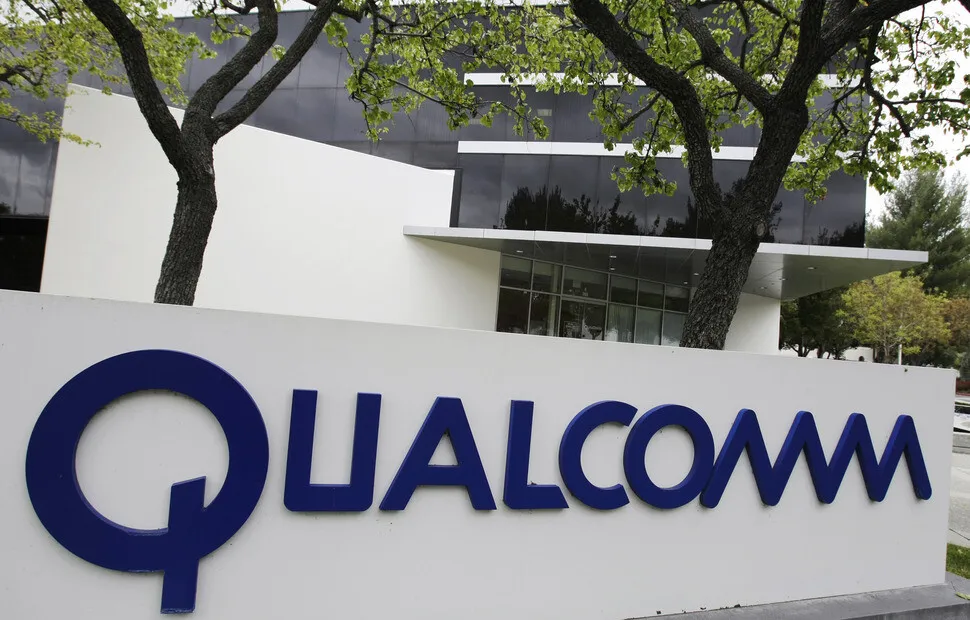hankyoreh
Links to other country sites 다른 나라 사이트 링크
High Court upholds FTC judgment against IT company Qualcomm

A South Korean court declined the US information technology company Qualcomm’s request to suspend a Fair Trade Commission (FTC) corrective order over unfair contractual terms imposed on cell phone manufacturers. Seoul High Court’s seventh administrative division ruled on Sept. 4 that it had rejected Qualcomm’s request for a suspension of the FTC’s measure.
“It is impossible to conclude that the corrective order raises concerns about irreparable damages to Qualcomm or that there is any exigent need to suspend its validity to prevent that,” the court said in its decision. The ruling means that the FTC order will remain in effect until the main trial.
In Dec. 2016, the FTC issued a corrective order claiming Qualcomm was abusing its dominant market position to engage in unfair practices, assessing 1.03 billion won (US$911,000) in penalties and barring it from enforcing unfair contractual conditions. The company is alleged to have used its modem chipset supply as leverage to force Samsung Electronics, Apple, and other mobile phone makers to sign licensing contracts related to standard mobile communications technology. In February, Qualcomm filed suit to have the penalty and corrective order overturned, requesting that the order be suspended until a ruling in that case.
The company claimed that the order was forcing it to fundamentally alter the key structure of its business model and generating irreparably large damages. The FTC countered that Qualcomm’s actions had been in violation of the “FRAND” principle requiring standard essential patents to be made available in a fair, reasonable, and non-discriminatory way.
With its decision, the court sided with the FTC. First, it concluded that the corrective order was “not substantially different from demanding compliance with the FRAND commitment,” arguing that it did not constitute any new and excessive imposition of legal responsibility on the FTC’s part.
The court also said Qualcomm “failed to demonstrate any concrete potential for damages or their scale which might be seen as indicating changes to business structure or increased transaction costs.”
By Hyun So-eun, staff reporter
Please direct questions or comments to [english@hani.co.kr]

Editorial・opinion
![[Column] What the media’s Mamdani-bashing missed [Column] What the media’s Mamdani-bashing missed](https://flexible.img.hani.co.kr/flexible/normal/500/300/imgdb/original/2025/1119/8917635396484299.jpg) [Column] What the media’s Mamdani-bashing missed
[Column] What the media’s Mamdani-bashing missed![[Column] Another Eulsa Year, another blow to Korea’s sovereignty [Column] Another Eulsa Year, another blow to Korea’s sovereignty](https://flexible.img.hani.co.kr/flexible/normal/500/300/imgdb/original/2025/1119/7417635391901154.jpg) [Column] Another Eulsa Year, another blow to Korea’s sovereignty
[Column] Another Eulsa Year, another blow to Korea’s sovereignty- [Editorial] South Korea is not a US outpost
- [Column] Trump’s kingdom, Xi’s empire
- [Column] Putting the ‘demos’ back in democracy
- [Editorial] Prosecutors’ selective outrage is self-incriminating
- [Column] Korea’s ‘republic of lawyers’ is only making things worse
- [Column] Trump should win Nobel War Prize
- [Editorial] Boozing, luxe gifts, playing royalty: Yoon and Kim must pay for privatizing power
- [Column] Korea’s young men need liberating too
Most viewed articles
- 1[Column] Another Eulsa Year, another blow to Korea’s sovereignty
- 2UN urges Korea to enact comprehensive law defining, prohibiting racial discrimination
- 3[Editorial] South Korea is not a US outpost
- 4Korea wins annulment in dispute with Lone Star, no longer obligated to pay compensation
- 5[Column] What the media’s Mamdani-bashing missed
- 6Tokyo-Beijing ties hit a postwar low in 2012 island dispute — this time, it may be worse
- 7Yonsei professor threatens to suspend students in mass AI cheating scandal
- 8Local firms predict China will outcompete Korea in all major industries, including chips, by 2030
- 9Korea to create dedicated population strategy ministry to combat low birth rate, aging society
- 10[Column] Trump should win Nobel War Prize